| Day |
Morning |
Afternoon |
Evening |
| Mon Aug 5, 2019 |
|
Day 1 of optional Workshop on “Process Data Analytics and Machine Learning”, taught by S. Joe Qin, Leo H. Chiang, and Richard D. Braatz |
Hospitality |
| Tue Aug 6, 2019 |
Day 2 of optional Workshop on “Process Data Analytics and Machine Learning”, taught by S. Joe Qin, Leo H. Chiang, and Richard D. Braatz |
Workshop (continued) |
Opening Plenary Lecture
Session Chair: Phillip Westmoreland (NCSU)
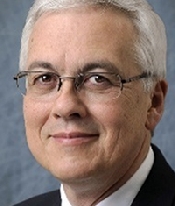
Phillip R. Westmoreland is a professor at North Carolina State University, Raleigh NC, in the Department of Chemical and Biomolecular Engineering. During November 2015 until July 2016, he was Leverhulme Trust Visiting Professor in the Department of Mechanical Engineering at Imperial College.He was a Research Engineer in the coal-conversion program at Oak Ridge National Laboratory from 1974-79, was on the faculty of the Chemical Engineering Department at the University of Massachusetts Amherst from 1986-2009, and served at the National Science Foundation in 2006-2009. He is also Honorary Professor at Nanjing University of Technology and served as Professeur invité at the Université de Lorraine. He served as 2013 President of AIChE, the American Institute of Chemical Engineers, and is a currently a trustee of the educational nonprofit CACHE Corporation, having served as its president in 2004-06. He is a past board member of the Combustion Institute (2002-2014), the Council for Chemical Research (2005-07), and AIChE (2009-11), and he was the founding Chair of AIChE's Computational Molecular Science and Engineering Forum.
Keith Collins (SAS)

Keith Collins directed R&D at SAS for most of his career, including 13 years as Chief Technology Officer. His latest charter is to redefine the role of IT from tactical to strategic, and to accelerate SAS in cloud computing. Collins, a graduate of North Carolina State University in computer science, is a founding member of the computer science department's strategic advisory board. In 2003, NC State named him a Distinguished Engineering Alumnus. Collins is an adviser for Bull City Venture Partners and a patron of the North Carolina Museum of Natural Sciences.
AI Recipe to Navigate the Art of the Possible
Knowing about the potential of AI, SAS CIO Keith Collins will focus on real-world deployments to get value out of the technology. To apply AI, organizations need the right strategy, skills and software at the same time - failure on any of these elements will stop effective implementation. He will discuss understanding the breadth of technology and the possibilities to help bring the pieces together for success.
|
| Wed Aug 7, 2019 |
Materials Design
Session Chair: Johannes Hachmann (SUNY-Buffalo)
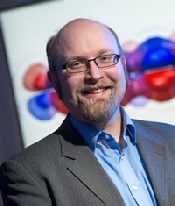
Johannes Hachmann is an Assistant Professor of Chemical Engineering at the University at Buffalo (UB), a Core Faculty Member of the UB Computational and Data-Enabled Science and Engineering graduate program, and a Faculty Member of the New York State Center of Excellence in Materials Informatics. He earned a Dipl.-Chem. degree (2004) after undergraduate studies at the universities of Jena and Cambridge, M.Sc. (2007) and Ph.D. (2010) degrees in Chemistry from Cornell University, and he conducted postdoctoral research at Harvard University before joining the UB faculty in 2014. The research of the Hachmann Group fuses (first-principles) molecular and materials modeling with virtual high-throughput screening and modern data science (i.e., the use of database technology, machine learning, and informatics) to advance a data-driven discovery and rational design paradigm in the chemical and materials disciplines. One of the centerpieces of the group's efforts is the creation of an open, general-purpose software ecosystem for the data-driven design of chemical systems and the exploration of chemical space. This work was recognized with a 2018 NSF CAREER Award.
Alán Aspuru-Guzik (University of Toronto)

Alán Aspuru-Guzik is a Professor of Chemistry and Computer Science at the University of Toronto, and the Research Chair of Canada 150 in Theoretical Chemistry. Previously Alán was a full professor at Harvard University. He received a B.Sc. from the National Autonomous University of Mexico (UNAM) in 1999 and obtained a PhD from the University of California, Berkeley in 2004, where he was a postdoctoral fellow from 2005-2006. Alán conducts research in the interfaces of quantum information, chemistry, machine learning, and chemistry. He developed algorithms and experimental implementations of quantum computers and quantum simulators dedicated to chemical systems. He has studied the role of quantum coherence in the transfer of excitonic energy in photosynthetic complexes and has accelerated the discovery by calculating organic semiconductors, organic photovoltaic energy, organic batteries, and organic light-emitting diodes. He has worked on molecular representations and generative models for the automatic learning of molecular properties. Currently, Alán is interested in automation and "autonomous" chemical laboratories. Honors include the Google Focused Award for Quantum Computing, the Sloan Research Fellowship, and the Early Career Award in Theoretical Chemistry from the American Chemical Society.
Materials for Tomorrow, Today
In this talk, I argue that for materials discovery, one needs to go beyond simple computational screening approaches followed by traditional experimentation. I have been working on the design and implementation of what I call "materials acceleration platforms" (MAPs). MAPs are enabled by the confluence of three disparate fields, namely artificial intelligence (AI), high-throughput quantum chemistry (HTQC), and robotics. The integration of prediction, synthesis and characterization in an AI-driven closed-loop approach promises the acceleration of materials discovery by a factor of 10, or even a 100. I will describe our efforts under the Mission Innovation umbrella platform around this topic.
Paulette Clancy (Johns Hopkins University)
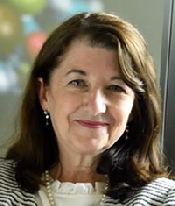
Paulette Clancy's research group is a leader in the modeling and simulation of semiconductor materials ranging from traditional silicon-based compounds to all-organic materials. In their quest to identify the best materials for applications ranging from solar cells to electronic displays, the group uses modeling to predict the link between material design and properties, allowing them to suggest processing conditions and tailored materials to fulfill a desired set of constraints. Recently, she added machine learning approaches to accelerate this materials discovery goal. Clancy joined the Johns Hopkins University as Department Head of Chemical and Biomolecular Engineering on Aug. 1, 2018. She received a D. Phil in physical chemistry from Oxford University and graduated with First Class Honors from London University. She did post-doctoral research at Cornell University and at London University, and joined the faculty at Cornell in 1987, where she served as the Samuel W. and M. Diane Bodman Professor of Chemical and Biomolecular Engineering Emerita and the inaugural director of the Cornell Institute for Computational Science and Engineering. She served two terms as the William C. Hooey Director of the School of Chemical and Biomolecular Engineering at Cornell, and was the first female director of the school and the first woman to chair an engineering department in Cornell's College of Engineering.
Use of Bayesian Optimization Approaches to Locate Polymorphs in Organic Electronic Materials
Organic semiconductors are already finding commercial applications in electronic devices like cell phones and displays. But they also offer significant advantages over conventional silicon- or III-V-based materials in terms of their unique properties such as mechanical flexibility, biocompatibility, and low-cost manufacturing. However, a major difficulty in deploying organic semiconductors is their predilection to pack into multiple, structurally distinct, crystal structures (a concept known as polymorphism). These polymorphs can exhibit differing ability to transport charge and hence change device performance with minimal energy expenditure. This is opening up the possibility of using polymorphs as molecular "switches." In this study, we investigated the propensity of a high performing p-type organic semiconductor, di-trimethylsilane benzothiophene (diTMS-BTBT) to form polymorphs. Our objectives were two-fold: Firstly, from the perspective of understanding inter-polymorph phase transitions in diTMS-BTBT and secondly, to develop a machine learning-based model to accelerate the identification of the polymorphic landscape for organic semiconductors. The traditional approach to finding optimal structures is to exhaustively search for the lowest energy conformation for a given set of unit cell parameters (a 6-dimensional space). We used Molecular Dynamics and an autonomous Bayesian optimization to vastly narrow the search space and identify all thermodynamically and kinetically stabilized structures. This included two polymorphs identified experimentally by the Diao group at UIUC and posited the existence of a third high-temperature polymorph as yet unconfirmed in the laboratory. The acceleration made possible by a Bayesian Gaussian Process approach allowed us to run expensive simulations for only a small fraction (~15-20 %) of the entire set of possible candidates (over 1000 structures). Our approach uses decision theory to choose an optimal material design that minimizes the number of experiments needed, without user intervention, and one that is broadly applicable across a range of chemical systems.
Panel Discussion: Session Speakers + David Ford (University of Arkansas)

David M. Ford’s research interests include statistical thermodynamics, simulations of molecular and colloidal systems, and membrane-based separations. He became interested in machine learning (ML) as a way to identify low-dimensional pathways to describe structural and phase changes in many-particle systems. Together with Profs. Bevan (Johns Hopkins), Grover (GA Tech), Maroudas (UMass Amherst) and Shapiro (Maryland College Park), he used ML to develop model-predictive-control strategies to assemble colloidal clusters into desired crystalline structures via temperature-tunable potentials. Ford is currently Professor and Kevin W. and Marie L. Brown Department Head Chair in the Ralph E. Martin Department of Chemical Engineering at the University of Arkansas. He earned a B.S. degree from the University at Buffalo and M.S.E. and Ph.D. degrees from the University of Pennsylvania, all in chemical engineering. He spent a year as a postdoctoral researcher at Sandia National Laboratories before starting as a faculty member in the Department of Chemical Engineering at Texas A&M University in 1997. In 2006 he moved to the University of Massachusetts Amherst, where he served as Professor of Chemical Engineering and Associate Dean for Academic Affairs in the College of Engineering before leaving for the University of Arkansas in 2017.
|
Poster Session 1
Session Chair: Alexander Dowling (University of Notre Dame)
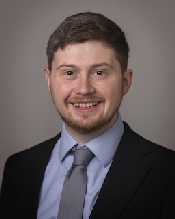
Alexander W. Dowling is an Assistant Professor in Chemical and Biomolecular Engineering at the University of Notre Dame (Indiana, USA). His research combines chemical engineering, computational optimization, and uncertainty quantification to enable principled molecular-to-systems engineering of sustainable energy and environmental technologies. Ongoing collaborative projects include the Institute for Advances Design of Energy Systems (IDAES - DOE), Carbon Capture Simulation for Industrial Impact (CCSI2 - DOE) and Center for Innovative and Strategic Transformation of Alkane Resources (CISTAR - NSF). He holds a B.S.E from the University of Michigan - Ann Arbor and Ph.D. from Carnegie Mellon University, all in chemical engineering.
|
Process Design
Session Chair: Selen Cremaschi (Auburn University)
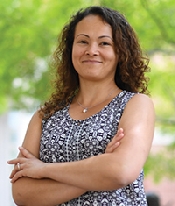
Selen Cremaschi is the B. Redd Associate Professor of Chemical Engineering at Auburn University. Her research interests are risk management, optimization, process synthesis, and planning under uncertainty. Her research group works at the intersection of operations research and chemical engineering, and develops systems analysis and decision support tools for complex systems, mainly focusing on healthcare and energy industry. Prior to joining Auburn University, she was a faculty member of the Russell School of Chemical Engineering at the University of Tulsa. She was the recipient of a Tulsa Tau Beta Pi Teaching Excellence award (2010), an NSF CAREER award (2011), and a Zelimir Schmidt Award for Outstanding Researcher (2013) among others. Her research work has been consistently supported by industrial collaborations in addition to federal agencies. She earned a Ph.D. from Purdue University and a M.S. and B.S. from Bogazici University (Turkey), all in chemical engineering.
Connor W. Coley (MIT)
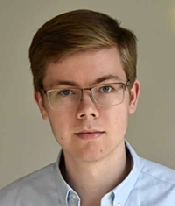
Connor Coley is currently a member of the Klavs Jensen and William Green research groups at MIT, and plans to graduate with a PhD in June, 2019. His research is focused on improving automation and computer assistance in synthesis planning and reaction optimization with medicinal chemistry applications. He is more broadly interested in the design and construction of automated platforms for analytics (e.g. kinetic or process understanding) and on-demand synthesis. Coley's work is an integral part of the new MIT-industry consortium, Machine Learning for Pharmaceutical Discovery and Synthesis.
Leveraging Historical Reaction Data to Inform Synthesis and Synthesis Design
Advances in laboratory automation promise to decrease the manual effort of synthesis, but determining how to synthesize a compound continues to require time and effort investment from expert chemists. To achieve full autonomous chemical synthesis, one must have robust synthesis planning software that can propose fully-specified synthetic routes to target molecules. In this talk, I will describe our recent efforts to develop such software that can leverage historical reaction data to inform decision-making in small molecule pathway design. The overall workflow can predict a rank-ordered list of reaction paths that connect the target to purchasable starting materials via a series of plausible reaction steps.
Concepción Jiménez-González (GlaxoSmithKline)
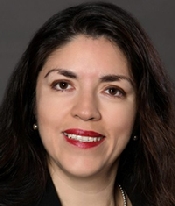
Concepción 'Conchita' Jiménez-González is Program Director at GlaxoSmithKline, developing technical leaders for the Pharma and Consumer Supply Chains. Prior to this position, she had a series of technical and business roles, including Director of New Product Development, Director of Operational Sustainability, Director of Engagement, Planning, Analysis and Reporting. Before joining GSK she worked at Monterrey Tech in México; and was visiting researcher at Pfizer. Conchita currently serves as a member of the Advisory Board of the American Chemical Society Green Chemistry Institute, and as a member of the Scientific Advisory Committee on Chemicals for the US EPA. Dr. Jiménez-González and her team received the AIChE Industrial Practice in Sustainable Engineering award in 2010. She was a co-chair of the Pharmaceutical Roundtable of the American Chemical Society Green Chemistry Institute (2010-2012), a member of the US EPA's Board of Scientific Counselors, Technology for Sustainability Sub-Committee. In addition, she served in the National Board of Directors of the Society of Hispanic Professional Engineers as National Vice-President (2009-2011) and Regional Vice-President (2006-2009). She holds a Ph.D. in Chemical Engineering and an MBA from North Carolina State University, Raleigh NC; an M.S. in Environmental Engineering from ITESM, Monterrey, México and a B.S. in Chemical and Industrial Engineering at the Chihuahua Institute of Technology, México. Following the Spanish tradition, she is also known as Conchita.
Data Analytics in Sustainable Pharma Process Design and Operations
This presentation will cover some aspects of the evolution of the use of data analytics to enable the design and operation of more sustainable pharmaceutical processes. It will discuss some key challenges for the widespread adoption of analytics in embedding sustainability into the design and operations of pharmaceutical products and processes. Finally, it will offer a perspective on the opportunities that the field of process system engineering has to overcome those challenges.
Panel Discussion: Session Speakers + Mario Eden (Auburn University)

Dr. Mario Richard Eden is the Department Chair and Joe T. & Billie Carole McMillan Professor in the Department of Chemical Engineering at Auburn University. His main areas of expertise include process design, integration and optimization, as well as molecular synthesis and product design. Dr. Eden's research has generated 3 edited books, 141 refereed papers/book chapters and resulted in almost 400 presentations at national/international meetings, including 65 invited lectures and seminars. To support his research and educational activities, Dr. Eden has successfully secured almost $21.0M in extramural funding from federal and industrial sponsors. Dr. Eden is the recipient of the National Science Foundation CAREER award (2006), the Auburn Engineering Alumni Council Junior Faculty Research Award (2006), the William F. Walker Superior Teaching Award (2007), the Fred H. Pumphrey Teaching Award for Excellence (2009 and 2011), the SGA Award for Outstanding Faculty Member in the Samuel Ginn College of Engineering (2009 and 2011), the Outstanding Faculty Member in the Department of Chemical Engineering (2009, 2011, 2013, and 2014), the Auburn Engineering Alumni Council Senior Faculty Research Award (2012), and the William F. Walker Merit Teaching Award (2014). He was awarded the 2014 AIChE Computing and Systems Technology (CAST) Division Outstanding Young Researcher Award and is the recipient of the 2015-2016 Auburn University Creative Research and Scholarship Award (the highest recognition for research at Auburn University). Dr. Eden received his M.Sc. (1999) and Ph.D. (2003) degrees from the Technical University of Denmark, both in Chemical Engineering. He has been an active member of the process systems engineering community for almost 20 years. Dr. Eden was elected 2nd Vice-Chair and has previously served as a Director of the Computing and Systems Technology Division of AIChE (2013-2017) and is currently a Trustee of Computer Aids for Chemical Engineering (CACHE) Corporation. Dr. Eden was selected to co-chair the 2014 Foundations of Computer Aided Process Design (FOCAPD) conference and also co-chaired the 2018 Process Systems Engineering conference (PSE 2018). He serves on the editorial boards for Computers & Chemical Engineering, Process Integration & Optimization for Sustainability, Clean Technologies & Environmental Policy, Chemical Process & Product Modeling, and the Journal of Engineering. He is a co-founder of the PSE for SPEED (Sustainable Product Process Engineering, Evaluation and Design) company.
|
| Thu Aug 8, 2019 |
Process Monitoring
Session Chair: Thomas Badgwell (ExxonMobil)
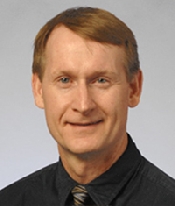
Thomas A. Badgwell is an Advanced Research Associate in the Data Analytics & Optimization Section, Corporate Strategic Research, at the ExxonMobil Research & Engineering Company in Clinton, NJ. He received a BS degree from Rice University and MS and PhD degrees from the University of Texas at Austin, all in Chemical Engineering. Tom's career has focused on modeling, optimization, and control of chemical processes, with past positions at Setpoint, Fisher/Rosemount, Rice University, and Aspen Technology. He is a Fellow of the American Institute of Chemical Engineers (AIChE), where he recently served as a Director of the Computing and Systems Technology (CAST) Division. Tom received the Computing Practice Award from the AIChE CAST Division in 2013. He is an Associate Editor for the Journal of Process Control and serves as a Trustee of the Computer Aids in Chemical Engineering (CACHE) Corporation.
Leo H. Chiang (Dow Chemical)
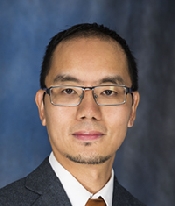
Leo H. Chiang is Associate Technology Director at The Dow Chemical Company, leading Chemometrics and Big Data Analytics implementations for Manufacturing. Leo has developed and implemented several data analytics techniques to solve complex manufacturing problems, resulting in 11 Dow Manufacturing Technology Center Awards. In 2016 he received the Dow R&D Excellence in Science Award in recognition of his scientific achievement in industrial research. Leo has a B.S. degree from University of Wisconsin at Madison and M.S. and Ph.D. degrees from the University of Illinois at Urbana-Champaign, all in Chemical Engineering. Leo has contributed to over 40 externally refereed journal/proceedings papers and has given over 80 conference presentations and university lectures. Leo has co-authored two books published by Springer Verlag. His textbook Fault Detection and Diagnosis in Industrial Systems is available in English and Chinese and has received over 2,000 citations according to Google Scholar. Leo is active in American Institute of Chemical Engineers (AIChE), having served as 2014-2016 Computing and Systems Technology (CAST) director, 2016 CAST 10E programming chair, and 2017-2018 AIChE spring meeting program chair (MPC). Leo was instrumental in setting up the Big Data Analytics Topical Conference (2015 to 2017) and Industry 4.0 Topical Conference (2018-2019) at the AIChE spring meeting. He was recognized by the AIChE with the 2016 Herbert Epstein Award for his leadership on Big Data Analytics technical programming and 2016 Computing Practice Award for his world-class leadership in the development and application of methodologies in analytics for batch and continuous processes known as Big Data.
Current Practice and Future Directions in Industrial Process Monitoring
To ensure safety, reliability, and productivity of industrial processes, data-driven techniques have been widely used in industrial process monitoring for decades. This talk will go over historical perspective and past successes of industrial process monitoring. In the current Industry 4.0 era, recent advancement at Dow in the areas of real-time analytics, Enterprise Manufacturing Intelligence (EMI), deep learning, and machine learning will be highlighted. Future research direction, the need of workforce development and corporate analytics culture will be addressed.
S. Joe Qin (University of Southern California)
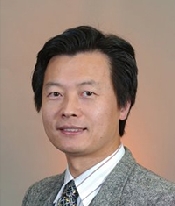
Dr. S. Joe Qin obtained his B.S. and M.S. degrees in Automatic Control from Tsinghua University in Beijing, China, in 1984 and 1987, respectively, and his Ph.D. degree in Chemical Engineering from University of Maryland at College Park in 1992. He is currently Director of the Center for Machine and Process Intelligence and Fluor Professor at the Viterbi School of Engineering of the University of Southern California. Dr. Qin is a Fellow of AIChE, Fellow of IEEE, and Fellow of the International Federation of Automatic Control (IFAC). He is a recipient of the National Science Foundation CAREER Award, the 2011 Northrop Grumman Best Teaching award at Viterbi School of Engineering, the DuPont Young Professor Award, Halliburton/Brown & Root Young Faculty Excellence Award, NSF-China Outstanding Young Investigator Award, and recipient of the IFAC Best Paper Prize for a model predictive control survey paper published in Control Engineering Practice. He has served as a Senior Editor of Journal of Process Control, Editor of Control Engineering Practice, a Member of the Editorial Board for Journal of Chemometrics, and Associate Editor for several journals. He has published over 140 papers in SCI journals and book chapters. He delivered over 40 invited plenary or keynote speeches and over 100 invited technical seminars worldwide. He has over 12,000 Web of Science citations with an associated h-index of 51 and over 30,000 Google Scholar citations. Dr. Qin's research interests include process data analytics, machine learning, process monitoring and fault diagnosis, model predictive control, system identification, building energy optimization, smart manufacturing and control, and control performance monitoring.
Statistical Learning of Dynamic Latent Variables for Monitoring and Predictive Analytics
In this talk we will focus on Statistical Learning of Dynamic Latent Variables for Monitoring and Predictive Analytics. This talk provides a review and analysis of Dynamic Latent Variable Modeling (DLVM) methods up to date. Reviewed methods include dynamics principal component analysis (DPCA), indirect DPCA (IDPCA), dynamic factor modeling (DFM), extended empirical orthogonal functions (EEOF), method of delays (MoD), singular spectrum analysis (SSA), frequency domain PCA, generalized dynamic principal components (GDPC), stochastic realization in subspace identification, dynamic inner PCA (DiPCA), dynamic inner CCA (DiCCA), and dynamic inner partial least squares (DiPLS). The methods reviewed include contributions from multivariate time series analysis, econometrics, financial time series analysis, meteorological and oceanographic data analysis, biomedical EEG analysis, as well as industrial and process data analytics. The common characters of dynamic latent variable models are that 1) they realize dimension reduction; and 2) the reduced dimensional subspace extracts principal dynamic information of the original time series. Applications include prediction, forecasting, interpretation, visualization, fault or anomaly detection, blind source separation, performance monitoring, as well as system identification. The talk will compare the strengths, weakness, and objectives of various methods in both time domain and frequency domain.
Panel Discussion: Session Speakers + Venkat Venkatasubramanian (Columbia University)
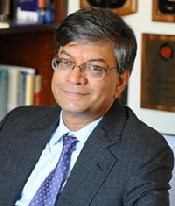
Professor Venkat Venkatasubramanian is Samuel Ruben-Peter G. Viele Professor of Engineering in the Department of Chemical Engineering, Professor of Computer Science (Affiliate), and Professor of Industrial Engineering and Operations Research (Affiliate) at Columbia University in the City of New York. He earned his Ph. D. in Chemical Engineering at Cornell, M.S. in Physics at Vanderbilt, and B. Tech. in Chemical Engineering at the University of Madras, India. Venkat worked as a Research Associate in Artificial Intelligence in the School of Computer Science at Carnegie- Mellon University. He taught at Purdue University for many years, before returning to Columbia in 2011. At Columbia, Venkat directs the research efforts in the Complex Resilient Intelligent Systems Laboratory.
|
Poster Session 2
Session Chair: Seongkyu Yoon (UMass Lowell)

Dr. Yoon is a Professor in the department of chemical engineering at the University of Massachusetts Lowell. He received his B.S. in Chemical Engineering from Yonsei University, his M.S. in Chemical and Biological Engineering from KAIST, his Ph.D. in Chemical Engineering from McMaster University, and his M.B.A. from Babson College. Currently Dr. Yoon is working as a co-Director of Massachusetts Biomanufacturing Center, UMass Site Director of NSF/IUCRC Research Center, AMBIC (Advanced Mammalian Biomanufacturing Innovation Center), and UMass technical lead for ManufacturingUSA in Biomanufacturing (NIIMBL). Dr. Yoon is leading the systems biology research group while conducting research in systems biotechnology, process systems engineering, life science informatics, and regulatory sciences with goals to develop an innovative biomanufacturing platform of protein/cell/gene biotherapeutics.
|
Control Design
Session Chair: Victor Zavala (UW-Madison)
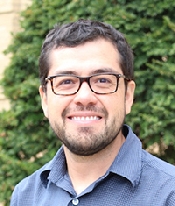
Victor M. Zavala is the Baldovin-DaPra Associate Professor in the Department of Chemical and Biological Engineering at the University of Wisconsin-Madison. Before joining UW-Madison, he was a computational mathematician in the Mathematics and Computer Science Division at Argonne National Laboratory. He holds a B.Sc. degree from Universidad Iberoamericana and a Ph.D. degree from Carnegie Mellon University, both in chemical engineering. He is on the editorial boards of the Journal of Process Control, Mathematical Programming Computation and IEEE Transactions on Control Systems and Technology. His research interests are in the areas of mathematical modeling of energy and agricultural systems, high-performance computing, optimization under uncertainty, and model predictive control.
Jay H. Lee (KAIST)
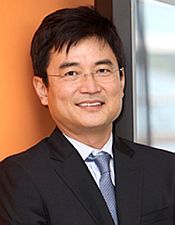
Jay H. Lee obtained his B.S. degree in Chemical Engineering from the University of Washington, Seattle, in 1986, and his Ph.D. degree in Chemical Engineering from California Institute of Technology, Pasadena, in 1991. From 1991 to 1998, he was with the Department of Chemical Engineering at Auburn University, AL, as an Assistant Professor and an Associate Professor. From 1998-2000, he was with School of Chemical Engineering at Purdue University, West Lafayette, and then with the School of Chemical Engineering at Georgia Institute of Technology, Atlanta from 2000-2010. Since 2010, he is with the Chemical and Biomolecular Engineering Department at Korea Advanced Institute of Science and Technology (KAIST), where he was the department head from 2010-2015. He is currently a Professor, Associate Vice President of International Office, and Director of Saud Aramco-KAIST CO2 Management Center at KAIST. He has held visiting appointments at E. I. Du Pont de Numours, Wilmington, in 1994 and at Seoul National University, Seoul, Korea, in 1997. He was a recipient of the National Science Foundation's Young Investigator Award in 1993 and was elected as an IEEE Fellow and an IFAC (International Federation of Automatic Control) Fellow in 2011 and AIChE Fellow in 2013. He was also the recipient of the 2013 Computing in Chemical Engineering Award given by the AIChE's CAST Division and the 2016 Roger Sargent Lecturer at Imperial College, UK. He is currently an Editor of Computers and Chemical Engineering and also the chair of IFAC Coordinating Committee on Process and Power Systems. He published over 180 manuscripts in SCI journals with more than 13000 Google Scholar citations. His research interests are in the areas of system identification, state estimation, robust control, model predictive control, and reinforcement learning with applications to energy systems, biorefinery, and CO2 capture/conversion systems.
Reinforcement Learning – Overview and Potential for Process Systems Engineering Field
This talk a brief introduction to Reinforcement Learning (RL) technology, summarize recent developments in this area, and discuss its potential for the field of process systems engineering. The paper begins with a brief introduction to RL, a machine learning technology that allows an agent to learn, through trial and error, the best way to accomplish a task. We then highlight two new developments in RL that have led to the recent wave of applications and media interest. A comparison of the key features of RL compared to the currently dominant mathematical programming based technologies like Model Predictive Control (MPC) is then presented in order to clarify their relative merits and shortcomings. This is followed by an assessment of areas that RL technology can potentially be used in process systems engineering applications including batch process control and integrating the planning and scheduling layers in multi-scale, multi-period, stochastic problems.
Melanie Zeilinger (ETH Zurich)
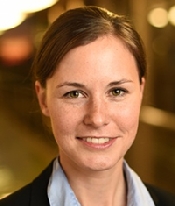
Melanie Zeilinger is an Assistant Professor at the Department of Mechanical and Process Engineering at ETH Zurich, where she is leading the Intelligent Control Systems group at the Institute for Dynamic Systems and Control. She received the diploma in Engineering Cybernetics from the University of Stuttgart in Germany in 2006 and the Ph.D. degree in Electrical Engineering from ETH Zurich in 2011. Her PhD thesis was awarded the ETH medal. From 2011-2012 she was a postdoctoral fellow at the École Polytechnique Fédérale de Lausanne (EPFL), Switzerland. From 2012 to 2015 she was a Postdoctoral Researcher and Marie Curie fellow in a joint program with the University of California at Berkeley, USA, and the Max Planck Institute for Intelligent Systems in Tuebingen, Germany.
Learning-based Control with Constraints
A new opportunity for pushing the performance of emerging complex control systems to the next level is offered by the capability of learning from data during closed-loop operation. Safety concerns when integrating learning in a closed-loop, automated decision-making process, however, represent a key limitation for leveraging this potential in many industrial applications. In this talk, I will present techniques based on Model Predictive Control (MPC) concepts in order to ensure satisfaction of safety constraints while learning from data. I will first present a cautious MPC controller that can leverage data, but also takes into account residual model uncertainty to systematically improve performance and constraint satisfaction properties by integrating a Gaussian process model, where the specific focus will be on approximations enabling the approach for fast dynamical systems. Second, a framework for augmenting any learning-based controller with safety certificates is presented. Future constraint satisfaction under the learning-based input is verified, and the control input modified if required, based on robust MPC techniques. The ideas will be highlighted with examples from vehicle control.
Panel Discussion: Session Speakers + Rolf Findeisen (Otto von Guericke University)
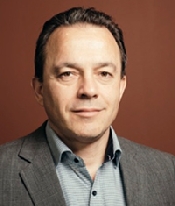
Rolf Findeisen studied engineering cybernetics at the University of Stuttgart and chemical engineering at University of Wisconsin-Madison. After his studies, he joined the Institute for Automatic Control at ETH Zürich, before moving with his advisor (Frank Allgöwer) to the University of Stuttgart, where he obtained his Dr.-Ing. In 2007 he joined the Otto-von-Guericke University Magdeburg where he heads the Laboratory for Systems Theory and Automatic Control. He has spent time as a visiting professor at the Massachusetts Institute of Technology, EPF Lausanne, Imperial College London and the Mitsubishi Research Laboratory in Cambridge. Rolf is editor and associated editor of several journals such as the IEEE Transactions on Control of Network Systems and the IEEE Control Systems Magazine. He is actively involved in the organization of international conferences and workshops, such as the World Congress of the International Federation of Automatic Control (IFAC) 2020 in Berlin or the conference on the Foundations of Systems Biology in Engineering (FOSBE) 2016. The main research interests of Rolf Findeisen are in method development for optimal and predictive control of uncertain, autonomous and cyber physical systems, the control of interconnected systems, system identification and the fusion of learning and control. Main fields of applications span from systems biology, biotechnology, systems medicine, up to mechatronic and robotic systems.
|
| Fri Aug 9, 2019 |
Business, Scheduling, and Supply Chain
Session Chair: Gintaras V. Reklaitis (Purdue University)
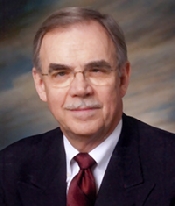
Gintaras.V. (Rex) Reklaitis is Burton and Kathryn Gedge Distinguished Professor of Chemical Engineering at Purdue University (USA). He has served as Head of the School of Chemical Engineering and deputy director of the NSF Engineering Research Center on Structured Organic Particulate Systems, among other appointments. His expertise lies in process systems engineering, the application of information and computing technologies to process and product design, process operations and supply chain management. Current research interests include applications of process systems methodology to improve pharmaceutical product design, development, manufacture and administration as well as systems studies of integrated energy networks and supply chains. He was educated at the Illinois Institute of Technology (BS ChE), and received MS and PhD degrees from Stanford University. He is a member of the US National Academy of Engineering, fellow of AIChE, and past Editor-in-Chief of Computers & Chemical Engineering. Among the recognitions he has received are the CAST Computing in Chemical Engineering Award (AICHE), the ChE Lectureship Award (ASEE), the Van Antwerpen and Warren K Lewis Awards (AIChE) , the Pruitt Award (CCR) and the Long Term Achievements in Computer Aided Process Engineering Award of the EFChE. He has served on the Board of Directors of AICHE, the Council for Chemical Research and the CACHE Corporation and continues to serve on the editorial boards of several journals. He has published 290 papers and book chapters and edited/authored nine books.
Marina Kovach (IBM)
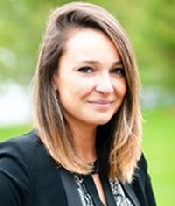
Marina is an Associate Partner at IBM Global Business Services in Healthcare and Life Sciences (HCLS). She has 7 years of HCLS advanced analytics experience, especially in Big Data analysis, strategic and applied implementation of AI including statistical data mining and analytics solutions, such as risk-scoring models, customer segmentation, event onset predictive modeling, and visualization. She got a Masters degree at North Carolina State University's Institute for Advanced Analytics in May 2011. Her previous experience includes clinical research, study coordination, technical writing and translation work at Duke University Medical Center, as well as international operations and volunteer work.
Analytics in Healthcare and Life Sciences
Each industry within the Healthcare and Life Sciences ecosystem has been quickly expanding and even quicker identifying need for utilizing data and building cognitive capabilities to gain access to analytical insights to improve quality, experience and outcomes. Companies and enterprises are moving to innovate digital tools and expand technology to support their engagement strategies, implementing a data-driven model, in order to improve patient experience, and close the gap between health and wellness, diagnosis and treatment, intervention and outcomes, with personalized interactions. Businesses are leveraging data and analytics to better target customers and providers, differentiate and prove drug effectiveness, driven by high drug prices, generic substitutes, while proving value, as consumers look for discounts and payers aim to lower costs with value-based reimbursement. In the underworkings of the system, the value of feature generation, data understanding, and machine learning is becoming increasingly more important. Re-engineering business operations, enabling and automating processes, while also applying analytics to deliver impactful insights, is the way to solve enterprise challenges and drive market-leading performance. The industry is moving from a time when companies would learn and adapt from past experience to instead now focusing on a design modeling for lack of burden from infrastructure and processes, and moving into an aggressive pursuit of future-tech enabled experiences in order to emerge ahead of the game.
Warren B. Powell (Princeton University)

Warren B. Powell is a professor in the Department of Operations Research and Financial Engineering at Princeton University, where he has taught since 1981 after receiving his BSE from Princeton University and Ph.D. from MIT. He is the founder and director of CASTLE Labs which focuses on models and algorithms in stochastic optimization motivated by many areas of application. He has pioneered a new unified framework for sequential decision problems under uncertainty, which spans stochastic resource allocation to optimal learning, which he has applied to problems in materials science. He has written two books and 240 papers and is the recipient of numerous awards including an honorary doctorate from the University of Quebec and the Daniel Wagner prize of Informs. He is an Informs Fellow, and has supervised over 50 graduate students and post-docs along with 200 undergraduate senior theses.
A Unified Framework for Sequential Decision Analytics in Energy Systems
Energy systems offer a variety of modeling challenges when addressing problems of design and control. Time scales range from seconds to years, decisions may be scalar or high dimensional, problems are often solved in the presence of rolling forecasts, and uncertainty arises from a number of sources (from grid failures to uncertain wind and solar) and exhibits different behaviors. These problems have been addressed in the academic literature using a variety of modeling and algorithmic frameworks, including (but not limited to) dynamic programming, stochastic programming, stochastic control, simulation optimization, approximate dynamic programming/reinforcement learning, model predictive control, and even multiarmed bandit problems. Particular frustrating is that these communities do not use a common modeling framework. We are going to introduce a universal modeling framework that can be used for any sequential decision problem in the presence of different sources of uncertainty. The framework is centered on an optimization problem that optimizes over policies (rules for making decisions), where we show that there are two fundamental strategies for designing policies (policy search and policies based on lookahead approximations), each of which further divide into two classes, creating four (meta) classes of policies that are the foundation of any solution approach that has ever been proposed for a sequential problem. We use different settings in energy to illustrate the four classes of policies, and show that each of the four classes can work best, depending on the data, using the context of an energy storage problem. I will also briefly touch on the critical issue of uncertainty quantification.
Panel Discussion: Session Speakers + David Frede (SAS)
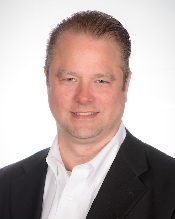
David Frede is a Principal IoT Product Manager for SAS Institute's Manufacturing Global Practice. He develops advanced & predictive analytic solutions for manufacturing and industry around product quality and asset utilization. David Frede comes to us with a rich education and experience in manufacturing technologies. He has a B.S.E.E. from Kettering University (formerly known as GMI Engineering & Management Institute) and a Masters of Science in Finance from DePaul University. His work experience spans from plant floor control technologies like PLCs and Drives through production management (MES) systems, ERP Systems and finally in the area or advanced & predictive analytics. Dave's experience has been spent with Rockwell and channel, General Electric, and his current position as Principal Industry Consultant for SAS. His experience that spans both above and below the production management space and now works on applying advanced analytics into manufacturing.
|
Educating Students and Colleagues
Session Chair: Richard D. Braatz (MIT)
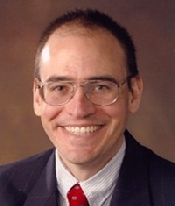
Richard D. Braatz is the Edwin R. Gilliland Professor and Faculty Research Officer of Chemical Engineering at the Massachusetts Institute of Technology (MIT) where he does research in process data analytics and control theory and their application to advanced manufacturing systems. He has consulted or collaborated with more than 20 companies including IBM, United Technologies Corporation, Dow Chemical, Merck, and Novartis. His work has been recognized by the Donald P. Eckman Award, the Curtis W. McGraw Research Award, the IEEE Control Systems Society Transition to Practice Award, and the AIChE CAST Computing in Chemical Engineering Award, and he is Fellow of IEEE, IFAC, AAAS, and AIChE. His coauthored publications include the textbook "Fault Detection and Diagnosis in Industrial Systems" published by Springer Verlag in 2001. He is the President of the American Automatic Control Council and a member of the National Academy of Engineering.
Michael Rappa (North Carolina State University)
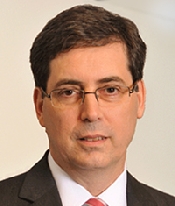
Michael Rappa is the founding director of the Institute for Advanced Analytics and a member of the faculty in the Department of Computer Science at North Carolina State University. As head of the Institute, he leads the nation's first Master of Science in Analytics as its principal architect. Before joining NC State as Distinguished University Professor in 1998, for nine years he was a professor at the MIT Sloan School of Management. Appointed the inaugural Goodnight Director in 2015, his current position at the Institute is endowed and named in honor of the University's distinguished alumnus Dr. James Goodnight.
Behold the Data Scientist!
Part statistician, part computer scientist, part mythical superhero adept at wrangling massive amounts of disparate data into meaningful insights—the data scientist has become the one of the most sought-after and, consequently, highest paid cog in gears of data-driven organizations the world over. Barely a decade since emerging from the primordial soup of San Francisco Bay, who are these amazingly talented individuals? What skills do they uniquely possess? Where do they congregate in nature, and how much does it cost to woo them over? And most importantly, presuming it’s possible, how can universities make thousands more of these modern-day golden geese? This talk draws on my experience leading the nation’s first full-fledged graduate degree program aimed at producing budding data scientists, the Master of Science in Analytics (MSA), founded by the Institute for Advanced Analytics—and today, one of the university's largest and most successful graduate degree programs.
Panel Discussion: Session Speakers + John Matranga (OSIsoft)
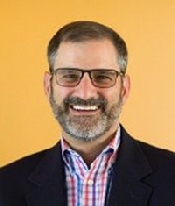
John Matranga is the Director of Customer Innovation and Academia at OSIsoft. Responsible for the global STEM education program at OSIsoft, John enables academic institutions to leverage the PI System software and OSIsoft resources for education and research use. John started with OSIsoft in 1990 and has extensive expertise in technology vision, adoption, and services. Focused on sensor based data for the past 30 years, his work has spanned the areas of software architecture, design, development and delivery for commercial software offerings in Cyber Physical Systems. John lives in the San Francisco bay area with his wife and three children. Previous to OSIsoft, John was part of the IBM T.J. Watson Research Center and holds a BS in Chemical Engineering from Lehigh University.
Kody Powell (University of Utah)
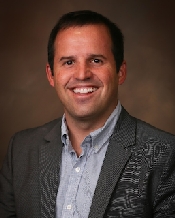
Dr. Kody Powell is an Assistant Professor in Chemical Engineering at the University of Utah. His research is focused on design, optimization, advanced control, and machine learning, particularly in the context of renewable energy and the smart grid. Dr. Powell previously worked for ExxonMobil, where his work focused on advanced control and optimization of combined heat and power as well as industrial district energy systems. His research now focuses on designing and operating energy systems with enhanced flexibility to better enable high penetrations of renewables. Dr. Powell's research team collaborates very closely with industry and focuses on manufacturing systems, solar thermal power, combined heat and power, and smart buildings and cities. The Powell Research group uses tools from process systems engineering (PSE) to solve these problems. Dr. Powell is also the Director of a U.S. Dept. of Energy-funded Industrial Assessment Center, which provides his research group with many opportunities to solve real-world problems and collaborate closely with manufacturers. Since starting as a faculty member in 2016, Dr. Powell has been the recipient of several research awards, totaling over $6 million from federal, state, and industry research grants,
|
Conference Banquet
+ after dinner remarks by Phillip Westmoreland and Martha Grover |